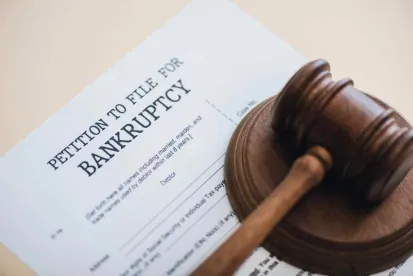The Senate has passed a bill by unanimous consent to extend the heightened debt ceiling for Subchapter V of Chapter 11. If passed by the House and signed into law, small business borrowers with up to $7,500,000 in noncontingent, liquidated debts will be eligible for relief under Subchapter V for another two years. The ceiling was previously raised to $7,500,000 as part of the CARES Act in 2020, but lapsed back to $3,024,725 as of April 1, 2022.
On April 7, 2022, the United States Senate passed amended S. 3823, the “Bankruptcy Threshold Adjustment and Technical Corrections Act,” which would retroactively preserve the $7,500,000 debt threshold to qualify for Subchapter V of Chapter 11 of the Bankruptcy Code for an additional two years. Subchapter V was initially added to the Bankruptcy Code in February 2020 through the Small Business Reorganization Act of 2019, as an innovative restructuring platform for small businesses with noncontingent liquidated debt of $2,725,625 or less. However, that debt ceiling was short-lived and quickly increased in March 2020 to $7,500,000 as a COVID-19 relief measure implemented through the CARES Act, Pub. L. No. 116-136 (2020) and subsequently extended through March 27, 2022.
Although S. 3823 was introduced on March 14, 2022, as a measure to make the $7,500,000 debt ceiling permanent, the increased debt ceiling expired without any action on S. 3823 and now sits at $3,024,725 due to inflationary adjustments. On April 7, 2022, Senator Murphy (D-CT), on behalf of Senator Grassley (R-IA), introduced an amendment (S.Amdt. 5025), co-sponsored by Senators Durbin (D-IL), Whitehouse (D-RI), and Cornyn (R-TX) (all of whom also co-sponsored the original S. 3823), which imposes a two-year sunset on the $7,500,000 debt ceiling and, with that amendment, the legislation passed in the Senate by unanimous consent.
Subchapter V has brought about significant changes to business restructuring and creditors’ rights, particularly in light of the expanded eligibility to qualify as a “small business debtor.” Indeed, Subchapter V has steadily grown as a percentage of commercial Chapter 11 case filings over the past two years and, if the proposed legislation is enacted, that trend is likely to continue. Parties that may be involved in Subchapter V proceedings should also take note that S. 3823 proposes various other changes to the existing law, including a correction to rules regarding debtor-affiliates and other clarifications.
The bill goes next to the House of Representatives, where it must pass and then be signed by President Biden before it becomes law. The House is in recess until April 26, 2022, so S. 3823 (and small business debtors) will likely have to wait until at least then.






 />i
/>i
